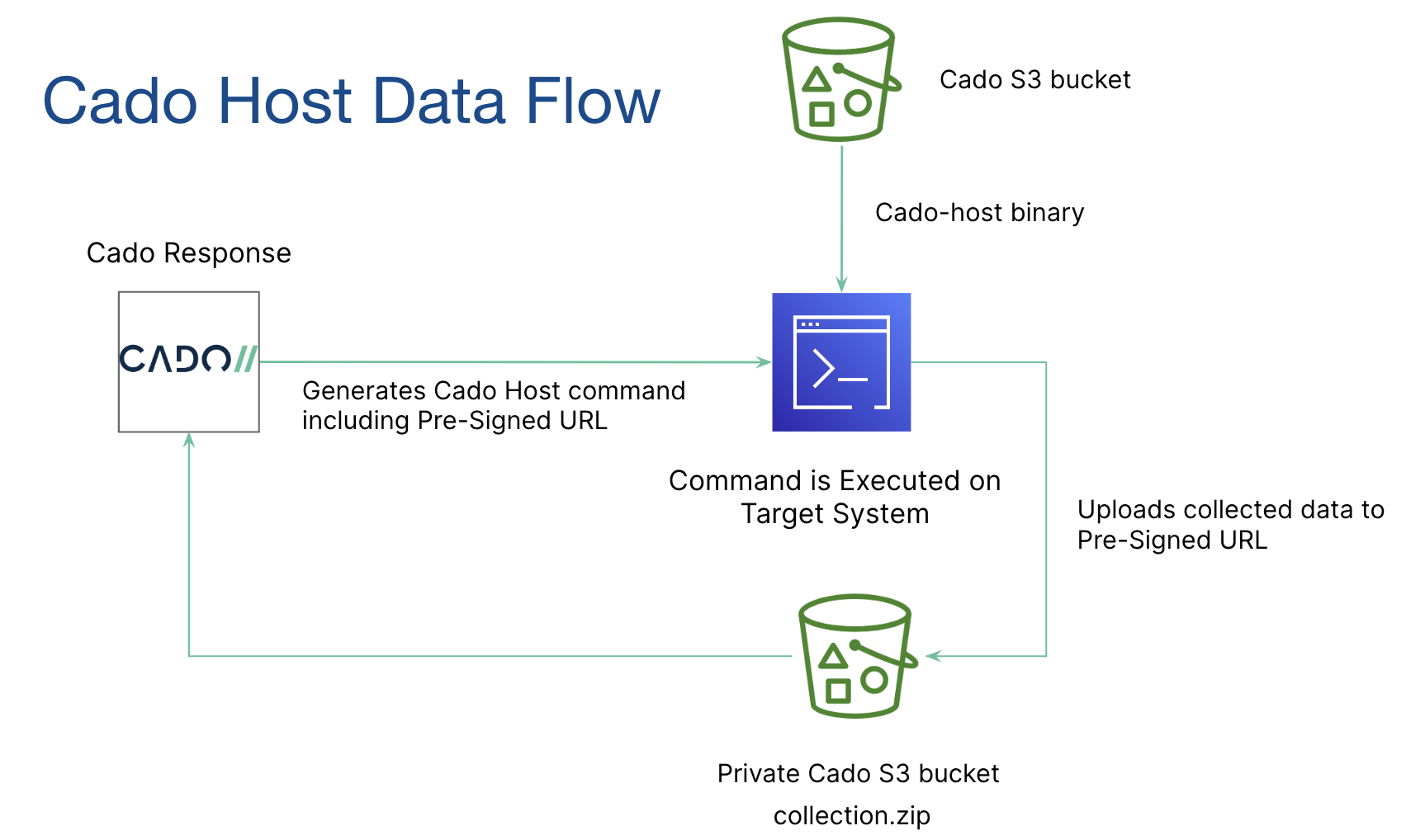What is Cado Host
Cado Host is a tool for acquiring forensic artifacts from target systems and storing them in cloud storage. It enables quick triage investigations by collecting essential data, which is stored in a zip file that can be automatically uploaded to Amazon AWS, Microsoft Azure, or Google Cloud Storage. Cado Host also supports local file storage, making it usable in air-gapped environments where cloud access is unavailable. Once the artifacts are collected, they can be imported, processed, and analyzed using the Cado platform.
Data Collected
Cado Host collects the following data from a target system:
- Files from key forensic artifact locations.
- Open files.
- Metadata on running processes and network connections.
- Memory (optional).
For more details, see Collected Artifacts.
Use Cases and Integrations
Cado Host integrates with the platform to collect data from:
- AWS EC2 instances via SSM.
- Kubernetes systems like ECS, EKS, GKE, and AKS.
- XDR systems such as CrowdStrike and SentinelOne.
High-Level Data Flow
The diagram below illustrates the high-level data flow for Cado Host with AWS. The process is similar for Azure and Google Cloud Storage, differing only in the cloud storage provider.

Supported Operating Systems
Cado Host binaries are available for:
- Microsoft Windows: Versions 7, 8.1, 10, 11, and Windows Server 2012 R2 and above. Windows releases are signed with an EV certificate.
- Linux: Debian (9+), Ubuntu (16.04+), Fedora (29+), RHEL (7+), openSUSE (15+), SUSE Enterprise (SLES 12 SP2+), and Alpine (3.10+).
- macOS (ARM): Version 14.0.0+.
For older operating systems, we recommend alternative tools:
- Linux: Use UAC.
- Windows: Use Cado Batch (for Windows 2003+).
- macOS (Intel): Use UAC or an older version of Cado Host